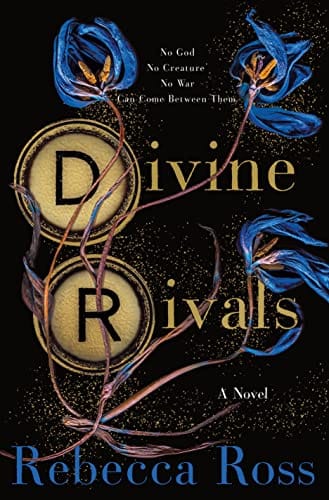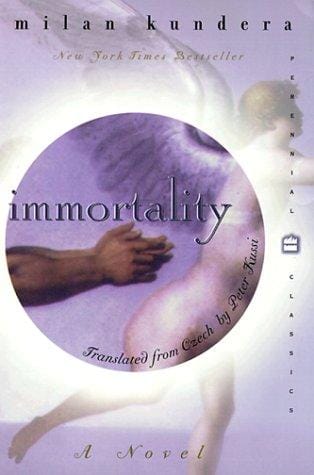Divine Rivals: An 800-Word Deep Dive Into Rebecca Ross’s Spellbinding Bestseller
Explore the plot, characters, themes, and buying options for Divine Rivals by Rebecca Ross in this concise, spoiler-light 800-word guide.

Introduction to Divine Rivals
Since its release, Rebecca Ross’s Divine Rivals has captured the hearts of fantasy and romance readers alike. Set against the backdrop of a divine war that bleeds into a 1920s-inspired world, the novel weaves heartfelt letters, secret identities, and mythic conflict into a sweeping story about love, loss, and resilience. This article offers an 800-word, spoiler-light exploration of the book’s plot, characters, themes, and buying options—perfect for anyone wondering whether Divine Rivals deserves a coveted spot on their bookshelf.
Plot Overview
The story follows young journalist Iris Winnow, who pens heartfelt letters to her brother Forest, a soldier missing in action on the god-torn front lines. Unbeknownst to her, those letters magically slip through her wardrobe and land on the desk of Roman Kitt, her aloof newspaper rival. While Iris struggles to keep her family afloat and secure a promotion, Roman answers the mysterious notes under a pseudonym, providing emotional support as the divine war inches closer to the capital. When duty pulls both reporters toward the battlefield, their anonymous correspondence collides with real-world danger, forcing them to decide whether love and truth are worth risking their lives.
Main Characters
Iris Winnow
Iris is a determined eighteen-year-old who balances newsroom deadlines with caregiving responsibilities for her grieving mother. Her compassionate heart, quick wit, and relentless pursuit of integrity make her instantly likable. The letters she writes reveal a poetic voice that contrasts her professional tenacity, highlighting the duality many young adults feel when stepping into adult roles too soon.
Roman Kitt
Roman, the editor’s privileged yet solitary son, initially embodies classic rival energy—aloof, brilliant, and silently competitive. As the anonymous letters soften his guarded facade, readers discover a vulnerable young man battling familial expectations and self-doubt. His evolution from smug rival to steadfast ally underscores the novel’s central message: empathy dissolves distance faster than rivalry can grow it.
Themes and Motifs
Divine Rivals explores several resonant themes. Foremost is the power of words; Iris and Roman’s letters change their lives and influence the outcome of a war, illustrating how communication can bridge chasms created by gods and governments. Another theme is found family. Amid chaos, colleagues, soldiers, and deities choose loyalty that transcends blood ties. Finally, Ross interrogates faith—faith in deities, in oneself, and in hope—showing that belief can both heal and harm depending on who wields it.
Writing Style and World-Building
Ross’s prose is lyrical yet accessible, wrapping readers in imagery without slowing the pace. Her decision to blend 1920s aesthetics—typewriters, trench coats, smoky jazz clubs—with warring gods creates a setting that feels simultaneously nostalgic and revolutionary. Subtle details, like divine propaganda posters or enchanted typewriters, enrich the atmosphere and ground the fantastical elements in tactile reality. The result is a world you can almost smell, taste, and hear.
Why Readers Love Divine Rivals
Fans rave about the slow-burn romance that unfurls through letters, a trope reminiscent of classic epistolary novels yet elevated by magic. The emotional stakes feel authentic because Iris and Roman’s struggles mirror contemporary anxieties about war, journalism, and family pressure. Moreover, the book delivers equal parts action and introspection, keeping plot-driven readers and character-driven readers equally satisfied.
Comparisons and Influence
Readers who enjoyed Erin Morgenstern’s The Night Circus or V.E. Schwab’s The Invisible Life of Addie LaRue will appreciate the atmospheric prose and high-concept romance found in Divine Rivals. The book also shares thematic DNA with wartime epics like Letters From Skye, where correspondence forms the backbone of connection amid conflict. Yet Ross’s unique fusion of divine mythology and interwar culture crafts an experience wholly her own.
Where to Buy Divine Rivals
Divine Rivals is widely available in hardcover, paperback, e-book, and audiobook formats. Major retailers such as Amazon, Barnes & Noble, Bookshop.org, and Audible carry multiple editions. If you prefer supporting independent stores, check IndieBound or request a copy through your local librarian. Special signed or sprayed-edge editions occasionally pop up from FairyLoot and Illumicrate, so keep an eye on their announcements.
Final Thoughts
With tender romance, enthralling world-building, and timely reflections on the power of storytelling, Divine Rivals proves that Rebecca Ross is a leading voice in modern fantasy. Whether you crave swoon-worthy letters, journalistic intrigue, or mythological warfare, this novel delivers on every front. Add it to your reading list now, and prepare to root for Iris and Roman long after the final page turns.



